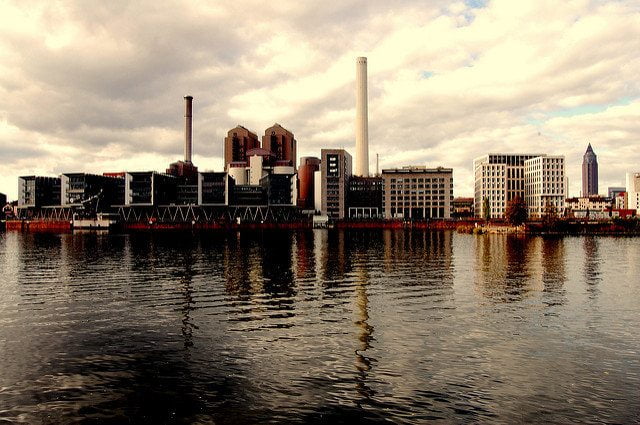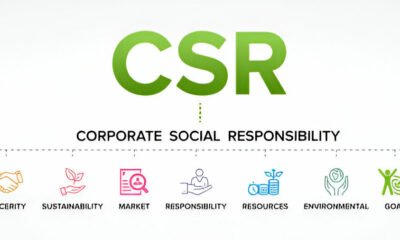

Features
These 3 Companies Are Helping the Environment through Corporate Social Responsibility
Corporate social responsibility, or CSR, refers to the policies established and efforts taken by businesses to affect a positive impact on their local communities and the planet as a whole. It’s a term heard in company boardrooms a lot these days as more and more executives become aware of the benefits of CSR programs to both the lives of their customers and their own companies’ bottom lines.
Corporate social responsibility covers a wide range of important issues, from fair trade and social justice to employee well being and ethical business practices. A major focus of many CSR programs is the environment. Here’s a look at three companies finding success at incorporating “green” principles into their corporate cultures.
Unilever
Unilever is one of the largest consumer goods businesses in the world. With literally hundreds of brands, including Dove, Hellmann’s/Best Foods, Lipton, Knorr, and Ben & Jerry’s, it’s practically impossible for anyone anywhere to go through the day without coming into contact with a Unilever product. Unilever can also boast of having one of the most comprehensive and far-reaching corporate social responsibility programs of any business on the planet. Through its Sustainable Living Plan, Unilever is leveraging its tremendous global influence to grow its business while “decoupling our environmental footprint from our growth and increasing our positive social impact.”
A major goal of the Sustainable Living Plan is to halve the company’s environmental footprint in the manufacturing and use of its products by 2030, specifically through substantial reductions in greenhouse gas emissions, waste production and water usage, and by sourcing all of its raw materials sustainably. And Unilever appears to be well on its way to achieving its goals. In 2015, the company reported a 39% reduction per ton of production in CO₂ emissions from energy, and a 37% reduction per ton production in water consumption. Additionally, as of 2015, Unilever is sourcing 60% of its raw materials sustainably. All of this while achieving marked overall business growth.
Starbucks
Another major company leading the way in corporate social responsibility on a number of environmentally-related fronts is Starbucks. Beginning with one store in Seattle’s Pike Place Market in 1971, Starbucks has expanded exponentially to become the world leader in coffeehouses with over 23,000 locations worldwide. From its start, Starbucks has made social responsibility a cornerstone of its corporate identity, placing particular emphasis on issues of sustainability and the environment.
In 2008, notwithstanding a recession that was threatening its very existence, Starbucks committed to a set of ambitious environmental goals, including improvement in the ethical sourcing of it coffee, and decreasing the environmental footprint of its coffeehouses. By 2015, the company had made impressive gains on those commitments. According to its 2015 Global Responsibility Report, 99% of Starbuck’s coffee met its ethical sourcing criteria. Also, Starbucks rigorous green building practices had resulted in over 800 of its locations meeting the highly-recognized Leadership in Energy and Environmental Design (LEED) certified rating.
Starbucks continues to lead the way among major companies in its corporate social responsibility practices, establishing new goals for 2020 that include increasing its investments in farmers and their communities, and expansion of green retail buildings and operations.
LendEDU
Corporate social responsibility is not exclusive to major international companies with household brand names. More startups are thinking about giving back alongside growth. Recently LendEdu, an online marketplace for student loans and student loan finance, took action to support the sustainability efforts of Vermont-based nonprofit One Tree Planted. One Tree Planted was founded in 2014 with the mission to “reforest our planet and provide education, awareness and engagement on the importance of trees.” The nonprofit is currently involved in reforestation activities in North America, South America, Africa and Asia.
In January 2017, LendEDU announced that it had partnered with One Tree Planted to donate the funds needed to plant one tree for every LendEDU customer it helps in 2017. According to LendEDU Co-Founder and CEO Nate Matherson, “Our team was looking for a way to give back in a meaningful way. We were inspired by [One Tree Planted’s] mission and fight against reforestation.”


 Environment12 months ago
Environment12 months agoAre Polymer Banknotes: an Eco-Friendly Trend or a Groundswell?

 Features11 months ago
Features11 months agoEco-Friendly Cryptocurrencies: Sustainable Investment Choices

 Features12 months ago
Features12 months agoEco-Friendly Crypto Traders Must Find the Right Exchange

 Energy11 months ago
Energy11 months agoThe Growing Role of Solar Panels in Ireland’s Energy Future





























